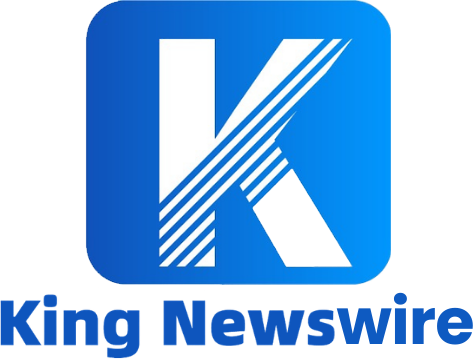Hyqoo Announces New AI Integration to Automate Routine Tasks and Enhance Creativity in the Workplace

Hyqoo (Hi-Q) is a Talent Cloud Platform providing global, remote, vetted talent on demand across Data, Cloud, Cybersecurity, AI, Software, and Product Engineering. In a globalized world finding talent presents companies of all sizes with new challenges and new opportunities. With decades of experience specializing in the needs of enterprise clients, Hyqoo adaptively matches talent with businesses, ensuring they get the on-demand expertise they need for projects of all sizes.
Industry studies show that AI-driven automation has boosted operational efficiency by up to 40% across various sectors. Hyqoo’s AI integration enables businesses to harness the power of generative AI, allowing machines to perform tasks like content creation, data management, and more, leading to smoother, more productive workflows.
How is Generative AI being used in the Creative Field?
Do you know AI could add as much as $15.7 trillion to the global economy by 2030, proving its
potential for cost savings and boosting economic progress? Indeed, it is one of the most
revolutionary technologies to work with today. It’s changing the face of creativity and extending the
bounds of how we can work on content ideation, design and creation. Below are some of the
applications of AI in the creative field.
● AI for Content Writing: Advanced AI-powered tools have come to assist content writers in
creating blog posts, marketing copies, and even scripts. This tool would help with ideation,
perfecting the tone, and improving readability. AI helps writers be more creative and also
helps them understand the theme of the topic.
● Art Generation: AI-driven platforms create artwork, logo designs, and amazing visuals from
simple text descriptions. AI tools allow new possibilities for bringing an artist or designer’s
concept to life without requiring graphic design experience.
● AI for Brainstorming: The AI-powered ideation tools use large volumes of data to generate
relevant ideas quickly. These help in ideating creative concepts, which can help with
branding, product development, and marketing strategies.
● Video Editing: AI is easing the task of video production by automating tasks such as scene
selection and color correction. It also generates entire video sequences from scripts that
enhance film productivity.
● Music Composition: AI has entered the world of music to help composers in their work of
generating melodies, harmonizing tunes, or even creating pieces. Thus, musicians can
experiment and innovate freely and improve the quality.
The Benefits of AI Automation in Routine Tasks
Generative AI models can easily collaborate with human intelligence, which can effectively enhance
creativity and automate mundane tasks. AI automation has many benefits that change how
businesses work by reducing frequent tasks and allowing for more room for important tasks. Here
are some of the advantages of AI automation in your business operations.
1. Enhanced Efficiency and Productivity
AI automation significantly reduces the time and effort required for routine tasks, leading to
enhanced efficiency and productivity. By eliminating manual errors and streamlining processes,
organizations can achieve higher performance levels and better results. For instance, an AI-powered
customer service platform can handle thousands of inquiries simultaneously, improving response
times and customer satisfaction.
2. Cost Savings
One of the best benefits of using AI is reducing cost savings, along with enhancing the accuracy and
quality of work. According to a report from Accenture, AI might save up to 38% of costs in different
industries. With the help of AI, businesses can complete tasks that would otherwise require a larger
workforce. AI can definitely help organizations utilize resources better and grow business by
investing in new ideas and growth opportunities.
3. Consistency and Accuracy
AI systems can help improve consistency and accuracy for processes requiring precise details. By
reducing mistakes made by individuals, AI can execute these processes with great accuracy. This has
led to a high demand for AI in evolving sectors such as finance and healthcare. For instance,
FinSecure Bank faced challenges with financial fraud, which led to losses. To tackle this problem,
FinSecure Bank implemented an advanced AI-driven solution that helped them detect frauds and
minimize them.
4. Scalability
Scalable AI refers to the ability of data models, to adjust their speed to accommodate changing
business needs. As the organization grows, there are a lot of challenges in scaling business
operations. AI provides scalability solutions that enable the growth of a business without necessarily
having to increase manual work. For example, AI systems can process more transactions to ensure
that operations remain efficient and effective while ensuring business goals are met.
5. Eliminate Safety Risks
In many industries, manual work is unsafe for the workers. Performing repetitive tasks or working
with hazardous materials in factories or at building sites can cause injuries. AI automation helps
manage riskier or repetitive jobs, thereby protecting health and safety of workers. The concept of
Generative AI for Developers helps individuals build several automated robots to perform risky tasks
in factories.
How is AI Enhancing Business Workflows?
The rise of AI in automation transforms how businesses handle everyday tasks and workflows. As
long as AI technology keeps improving, it will have new ways to automate different parts of
business. Let’s take a closer look at some of the key technologies driving this change.
1. Machine Learning Algorithms
Machine learning algorithms learn patterns in data to make predictions or decisions without explicit
programming. For instance, for repetitive tasks, ML will look at past data for trends to automate the
decision-making process. Applications such as predictive maintenance systems use ML to learn from
equipment data to estimate the time of failure so that prompt actions can be taken with less
downtime.
2. Natural Language Processing (NLP)
NLP essentially allows machines to understand, describe, and generate human language. Due to this
capability, NLP has turned out to be extremely helpful in conducting tasks related to language
processing, which includes document summarization, sentiment analysis, and responses to customer
queries. For instance, chatbots enabled with NLP can handle routine customer queries by responding
rapidly and also improving the customer experience. Businesses in different industries can also hire
generative AI experts to get the maximum benefits of NLP.
3. Robotic Process Automation (RPA)
Robotic Process Automation utilizes software robots or “bots” that execute frontline and repetitive
tasks. Such bots act like humans in using software applications to execute jobs such as data entry,
form filling, and information retrieval. RPA is very good at doing defined tasks with clear rules and
steps, making it perfectly suited for automating those jobs that follow set guidelines. According to
Gartner, RPA has the potential to save up to 29% of operational costs in back-office administration.
The Biggest Challenge to Implement AI to Automate Creative
Tasks?
While AI advances have automated creativity tasks in several fields, one big challenge still remains:
making sure that things stay unique. AI improves efficiency and performance, but the real creative
deal depends upon human touch and originality. Here are some of the things you need to consider
before using AI automation.
● Lack of Originality: AI-generated content mostly lacks flair because it is a product of human
creativity. Even though it may generate outputs that are impressive at times, AI usually relies
on established patterns and formulae in creating content, which makes the outputs
repetitive.
● Lack of Emotional Depth: Creativity is based on emotional intelligence and personal
experiences, which AI lacks. Human creatives embed content with emotional resonance and
personal insights which AI cannot replicate.
● Predictable Outputs: AI content tends to be predictable in its structures and styles. It is very
good to come up with ideas, or when someone is suffering short of creativity. However, with
AI, the end product lacks the distinctive personal touch that really makes any work truly
original.
Conclusion
AI is revolutionizing development by taking over routine work and unlocking creativity. This is
possible by using AI tools that involve the use of generative AI to efficiently execute operations,
reduce costs, and focus on high-priority tasks. The robust influence of AI not only streamlines
operations but also enables employees to work on more valuable tasks, helping save a lot of time
and expenses for businesses.
Maximize your business potential with AI! With Hyqoo’s Talent Cloud Platform you can connect and
hire highly skilled professionals from around the globe. Hyqoo AI streamlines talent acquisition by
helping you shorten the recruitment cycle and lower the recruitment costs.
Media Contact
Organization: Hyqoo
Contact Person: Atul Kumar
Website: https://hyqoo.com/
Email: Send Email
Country: United States
Release Id: 19092417186
